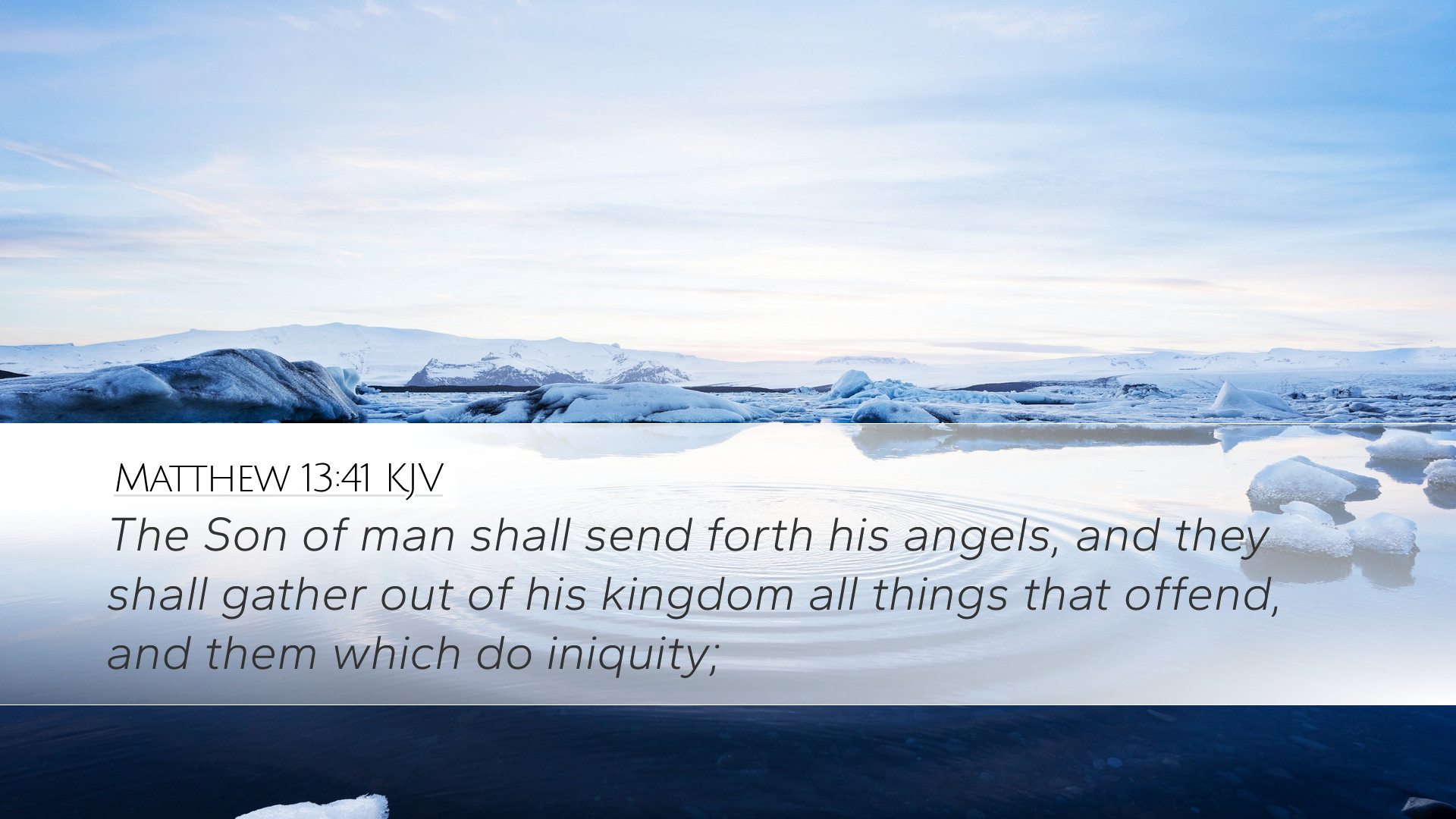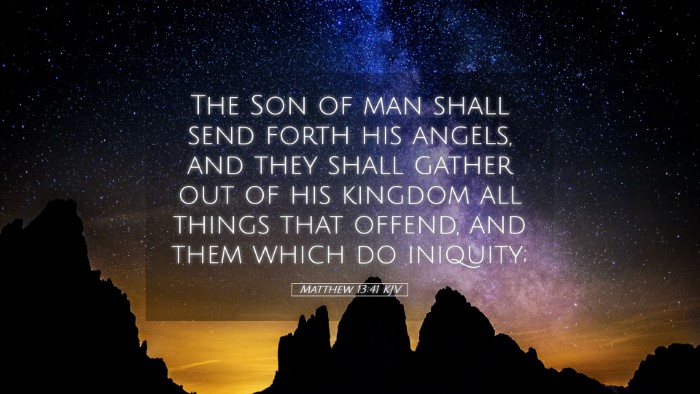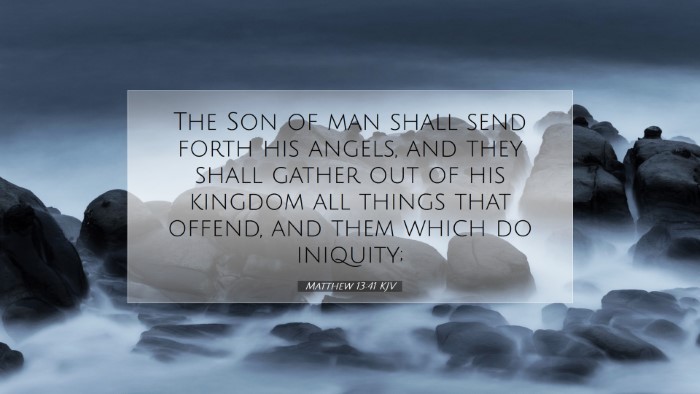Commentary on Matthew 13:41
Verse Context: Matthew 13:41 states, "The Son of Man will send out his angels, and they will gather out of his kingdom all causes of sin and all law-breakers." This verse comes from the parable of the weeds, where Jesus illustrates the nature of the kingdom of heaven and the final judgment.
Understanding the Parable
The parables of Jesus serve dual purposes of revelation and concealment. In the context of Matthew 13, particularly the parable of the weeds, Jesus employs agricultural metaphors that would resonate with His audience. The parable distinguishes between the righteous and the wicked, a theme prevalent throughout Scripture.
Matthew Henry notes that the gathering by angels indicates divine authority in judgment, prompting reflection on the roles of angels, both as messengers and executors of God's will. In this eschatological context, angels are seen as the agents who separate the righteous from the wicked at the end of the age.
The Role of the Son of Man
The title "Son of Man" emphasizes Jesus' dual nature as both divine and human. Albert Barnes elaborates that this term also signifies authority. Hence, Jesus as the Son of Man possesses the right and power to enact judgment. His authority is underscored by the proclamation that it is He who will send out the angels, thus reaffirming His sovereignty over creation.
Gathering Out of His Kingdom
Jesus highlights that those gathered will be “all causes of sin and all law-breakers.” Adam Clarke provides insight into the nature of weeds among wheat, representing false believers and evil influences that exist within the church. This signifies that the kingdom of heaven is not an immediate display of purity but contains both the righteous and the unrighteous until judgment day.
- Causes of Sin: This phrase captures not just individuals but entire systems and structures that promote iniquity. It evokes the idea that each aspect of sin within the kingdom will be addressed.
- Law-Breakers: This term indicates disobedience to divine law, a key element in understanding the moral order of the kingdom. Those who actively defy God’s commandments will be held accountable.
Implications for Judgment
The act of gathering signifies not only separation but also an impending judgment that is both terrifying and restorative. Matthew Henry emphasizes the urgency of Christ’s message that now is the time for believers to introspect and ensure adherence to God's calling. The implication is that the current coexistence of good and evil will ultimately lead to a divine reckoning.
Finality and Hope
While the concept of judgment can provoke fear, it is also a source of hope for believers. Albert Barnes points out that the righteous can await judgment with confidence, knowing that they will be vindicated. This verse reassures that God's justice will prevail, and the ultimate outcome will be the triumph of good over evil.
Moreover, it encourages the faithful to endure amidst trials and to remain vigilant. The presence of sin and lawlessness does not threaten the kingdom’s integrity, for the Son of Man oversees its ultimate restoration.
Practical Applications for Believers
For pastors and theologians, this verse can serve as a critical reminder of the necessity of holiness within the church. The dual existence of wheat and weeds urges leaders to guide their congregations toward righteousness while remaining aware of the realities of sin. Key takeaways include:
- Preach the Full Counsel of God: It is vital to communicate both the grace and the justice of God, highlighting the seriousness of sin while offering hope through Christ.
- Fostering Accountability: Encouraging believers to hold one another accountable can create an environment where righteousness prevails and sin is addressed.
- Embrace the Reality of Judgment: Reminding congregations that judgment is inevitable helps to instill a sense of urgency in evangelism and discipleship.
Theological Reflections
Theologically, Matthew 13:41 raises questions about the interplay between divine sovereignty and human responsibility. Adam Clarke brings forward discussions related to predestination and free will, exalting the notion that while God knows who will accept or reject Him, believers are called to witness and share in the harvest.
Additionally, this verse contributes to the eschatological narrative within the New Testament, affirming essential tenets of Christian doctrine regarding end times. The gathering of angels signifies a future hope where justice will ultimately triumph and righteousness will be established.
Conclusion
In summary, Matthew 13:41 contains profound truths regarding the nature of judgment, the authority of Christ, and the characteristics of His kingdom. Its implications resonate deeply with believers, urging a call to repentance, holy living, and diligent preparation for the coming kingdom. As the church navigates its mission in a world fraught with sin, this passage serves as both a warning and a blessed assurance of God's ultimate victory.


